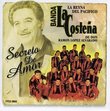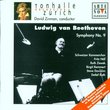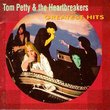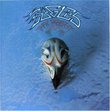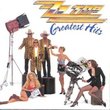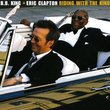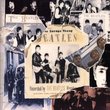| All Artists: Louis Jordan Title: Best of Members Wishing: 0 Total Copies: 0 Label: Mca Release Date: 7/26/1989 Genres: Blues, Jazz, Pop, R&B Styles: Regional Blues, East Coast Blues, Electric Blues, Jump Blues, Swing Jazz, Vocal Jazz, Vocal Pop, Classic R&B Number of Discs: 1 SwapaCD Credits: 1 UPCs: 076732407929, 076732407943 |
Search - Louis Jordan :: Best of
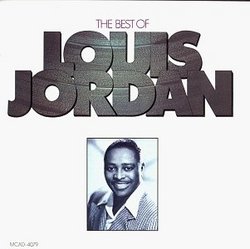 | Louis Jordan Best of Genres: Blues, Jazz, Pop, R&B
No Description Available. Genre: Jazz Music Media Format: Compact Disk Rating: Release Date: 15-AUG-1989 |
Larger Image |
CD DetailsSynopsis
Product Description No Description Available. Genre: Jazz Music Media Format: Compact Disk Rating: Release Date: 15-AUG-1989 Similar CDsSimilarly Requested CDs
|
Member CD ReviewsReviewed on 10/18/2016... Absolutely guaranteed to get you going. Very high energy fun that works as precursor to the early Rockers, the post Big Band scatters, hints of Cab Calloway and all around hoot. A workout favorite since if you aint mov'n ck for a pulse, you are dead.
CD ReviewsJordan--an important and refreshing influence of rock & roll Daniel J. Hamlow | Narita, Japan | 09/13/2003 (5 out of 5 stars) "Sandwiched inbetween the dying days of big band and early rock-and-roll were 1940's R&B singers whose swinging sounds laced with jazz and blues influences provided a transition to what later became rock-and-roll. Roy Brown, Wynonnie Harris, and blues saxophonist and singer Louis Jordan were among these artists, and it's fair to say that because both Bill Haley and Elvis Presley covered their songs and got more attention than they did.Louis Jordan's heyday was in the 1940's, and his shuffling, swinging "jump" sound combined with his goofy and humorous man-about-town schtick and sax solos. The earliest hit on here is slow "Knock Me A Kiss", was done in 1941.A full nine years before Bill Haley, Jordan did "Choo Choo Ch'Boogie" with an engaging boogie-woogieing piano and bass. Yes, remember, "Take me right back to the track, jack." "Let The Good Times Roll" has a sound similar to "Heartbreak Hotel", which means early rock.The partying "Saturday Night Fish Fry" is one of two songs that go beyond the average 2:30 time. It clocks in 5:20 but its excess length doesn't diminish the song. Hearing "It was rockin'" and the electric guitar there, this would've been a great Haley song."Caldonia" was the song that made me realize Jordan's connection to rock and roll, as I learned in my music class. That boogieing sound and Haley style rock just blends here, and the way he shouts "Caldonia" like "CaldoNYAAA" A singsong type monologue is included here, which shows another influence to rock."School Days" is basically a series of old nursery rhymes set to a snazzy jazzy beat. I remember those rhymes, e.g. Humpty Dumpty, Little Jack Horner, from the past, and was amused to hear them like this. "Five Guys Named Moe" has a similar sound.Then there were songs with goofy titles like "Ain't Nobody Here But Us Chickens" of chickens telling the farmer to let them get to sleep because chickens have work to do laying eggs. "Beans and Corn Bread" has some silly lyrics. "Beans and cornbread had a fight/beans knocked corn bread outta sight/cornbread said now that's all right." "Barnyard Boogie" is plain silly piano and sax jazz, with Jordan going "oink oink" "moo moo" at times, and is about the animals boogieing in the barnyard.Jordan could do city blues as well, as evidenced by "Buzz Me Blues", and the slower-paced "What's The Use Of Getting Sober", and "Somebody Done Changed The Lock On My Door." And with the Calypso Boys, he combined the Caribbean sound in his music in "Run Joe".Most of his biggest hits are here, although not "GI Jive" or "Is You Or Is You Ain't My Baby." Better get the Five Guys Named Moe album for those songs.Jordan is unjustly underrated when taking the history of rock and roll into consideration and is an artist requiring more evaluation and examination. His music anticipated rock and roll a decade before "Rock Around The Clock" and small wonder Chuck Berry, B.B. King, and Van Morrison acknowledged his influence." "Jump" for joy! Andy Agree | Omaha, NE | 06/21/2003 (5 out of 5 stars) "If you were trying to find the exact midpoint between the swing-jazz era and the rock `n roll era, this is it. This is one of the kinds of music that made rock `n roll possible. Jump blues is what it was called, and Louis Jordan - composer, singer, bandleader, saxophonist - was its most successful and important practitioner. As jazz veered into the less commercially appealing bebop style, and delta blues was brought north during the pre and post-World War II northward migration of southern blacks, this hybrid musical form was standard entertainment at nightclubs, particularly but not exclusively those with black audiences, during the late 40s and early 50s. At the time, Billboard called this "race music", yet Jordan had great crossover appeal without "whitening" his style, and had several pop chart-topping million-sellers to his credit. These recordings of Jordan's band, the Tympani Five, date from 1942-1954, but are mostly from the late 40s. They include several boogie-woogie piano-driven tracks (like the very successful "Choo Choo Ch' Boogie"), some non-jump blues ("Nobody Knows You When You're Down and Out") and a few tracks that actually do sound like early rock `n roll ("Saturday Night Fish Fry"). The band even throws in a calypso number ("Run Joe"). Jordan also created what might be considered the first music videos that served as introductory fare at movie theaters. Make no mistake, Jordan was more than a musician - he was an entertainer, and specifically, a comedian. There is a strong lacing of humor through almost every song. For example, in "Saturday Night Fish Fry", you will learn of the events that caused him to warn in the last verse "If you ever want to get a fist in your eye, just mention a Saturday night fish fry." In "Beware, Brother, Beware", Jordan gives an appreciative audience of men hilarious advice for the dubious objective of avoiding marriage at all costs: "If she saves your dough and won't go to a show......Beware! If her sister calls you brotha, you better get furtha.....Beware! If she calls on the phone and says `are you alone', you say `no I got three girls with me!'" In "Caledonia", Jordan squeals out the last syllable of the lady's name in such a way that you will instantly know this is what inspired Little Richard to squeal "Lucille" a few years later. In "Beans and Cornbread", we learn of a fight that almost breaks up the marriage of these two foods. There's a nice call and response in this song, in "I Want You to Be My Baby", and in "Five Guys Named Moe". You can't help but love this guy, so buy this CD! The only good reason you could possibly have for not buying it is that you are buying the Boxed Set instead."
|

 Track Listings (20) - Disc #1
Track Listings (20) - Disc #1
